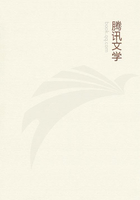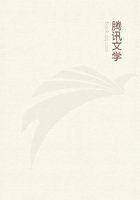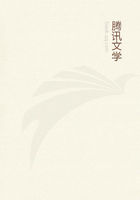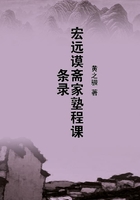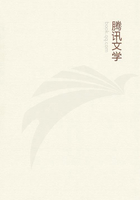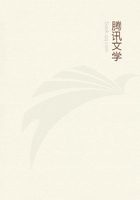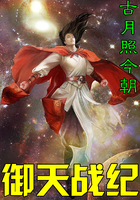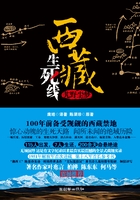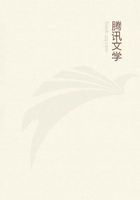a. What is most important in this book is his idea of the origin of our knowledge. He says: “The essence of the soul is in thought, just as that of matter is in extension. All else, such as sensation, imagination and will, are modifications of thought.” He thus begins with two sides, between which he sets an absolute chasm, and then he follows out in detail the Cartesian idea of the assistance of God in knowledge. His main point is that “the soul cannot attain to its conceptions and notions from external things.” For when I and the thing are clearly independent of one another and have nothing in common, the two can certainly not enter into relation with one another nor be for one another. “Bodies are impenetrable; their images would destroy one another on the way to the organs.” But further: “The soul cannot beget ideas from itself, nor can they be inborn,” for as “Augustine has said, ‘ Say not that ye yourselves are your own light.’ ” But how then comes extension, the manifold, into the simple, into the spirit, since it is the reverse of the simple, namely the diverse? This question regarding the association of thought and extension is always an important one in Philosophy. According to Malebranche the answer is, “That we see all things in God.” God Himself is the connection between us and them, and thus the unity between the thing and thought. “God has in Him the ideas of all things because He has created all; God is through His omnipresence united in the most intimate way with spirits. God thus is the place of spirits,” the Universal of spirit, “just as space” is the universal, “the place of bodies. Consequently the soul knows in God what is in Him,” bodies, “inasmuch as He sets forth” (inwardly conceives)“created existence, because all this is spiritual, intellectual, and present to the soul."(2) Because things and God are intellectual and we too are intellectual, we perceive them in God as they are, so to speak, intellectual in Him. If this be further analyzed it in no way differs from Spinozism.
Malebranche indeed in a popular way allows soul and things to subsist as independent, but this independence vanishes away like smoke when the principle is firmly grasped. The catechism says:
“God is omnipresent,” and if this omnipresence be developed Spinozism is arrived at; and yet theologians then proceed to speak against the system of identity, and cry out about Pantheism.
b. We must further remark that Malebranche also makes the universal, thought, the essential, by placing it before the particular. “The soul has the Notion of the infinite and universal: it knows nothing excepting through the Idea which it has of the infinite; this Idea must hence come first. The universal is not a mere confusion of individual ideas, it is not a union of individual things.”
According to Locke the individual from which the universal is formed precedes (infra, p. 299);according to Malebranche the universal Idea is what comes first in man. “If we wish to think of anything particular we think first of the universal;” it is the principle of the particular, as space is of things. All essentiality precedes our particular conceptions, and this essentiality comes first. “All essential existences (essences) come before our ordinary conception; they cannot be such excepting by God’ s presence in the mind and spirit. He it is who contains all things in the simplicity of His nature. It seems evident that mind would not be capable of representing to itself the universal Notions of species, kind, and suchlike, if it did not see all things comprehended in one.” The universal is thus in and for itself, and it does not take its rise through the particular.
“Since each existent thing is an individual, we cannot say that we see something actually created when, for example, we see a triangle in general,” for we see it through God. “No account can be given of how spirit knows abstract and common truths, excepting through the presence of Him who can enlighten spirit in an infinite way,” because He is in and for Himself the universal. “We have a clear idea of God,” of the universal: “We can have such only through union with Him, for this idea is not a created one,” but is in and for itself. As with Spinoza, the one universal is God, and in so far as it is determined, it is the particular; we see this particular only in the universal, as we see bodies in space. “We already have a conception of infinite Being, inasmuch as we have a conception of Being without regard to whether it is finite or infinite. To know a finite we must limit the infinite; and this last must thus precede. Thus spirit perceives all in the infinite; this is so far from being a confused conception of many particular things that all particular conceptions are merely participations in the universal Idea of infinitude - in the same way that God does not receive this Being from" finite “creatures, but,” on the contrary, “all creatures only subsist through Him."(3)c. As regards the turning of the soul to God, Malebranche says what Spinoza said from his ethical point of view: “It is impossible that God should have an end other than Himself (the Holy Scriptures place this beyond doubt);” the will of God can only have the good, what is without doubt universal as its end. “Hence not only is it essential that our natural love, i.e., the emotion which he brings forth in our spirit, should strive after Him" - "the will is really love towards God"- "but it is likewise impossible that the knowledge and the light He gives to our spirit should make anything else known than what is in Him,” for thought only exists in unity with God. “If God were to make a spirit and give it the sun as an idea or as the immediate object of its knowledge, God would have made this spirit and the idea of this spirit for the sun and not for Himself.” All natural love, and still more knowledge, and the desire after truth, have God as their end.” All motions of the will as regards the creatures are only determinations of motion as regards the creator.”

